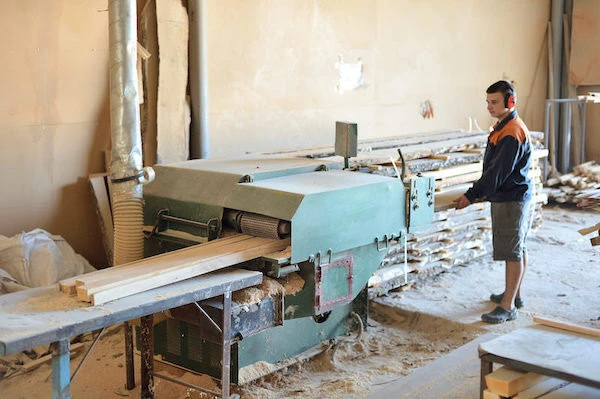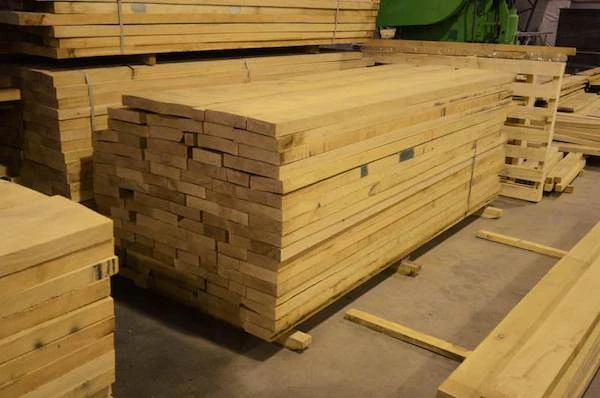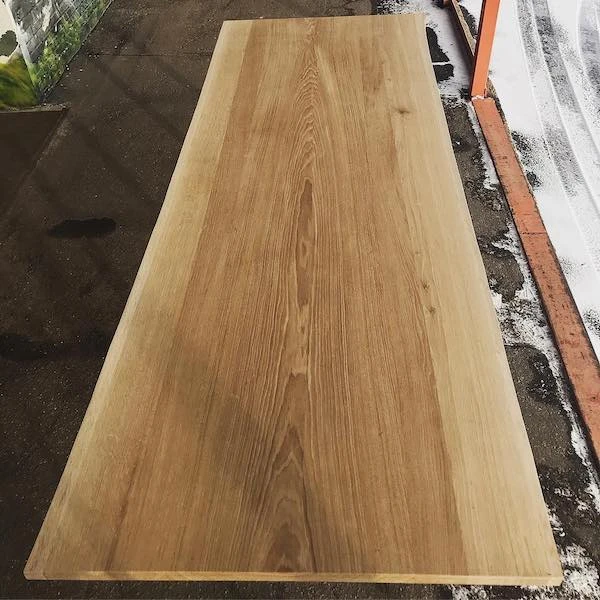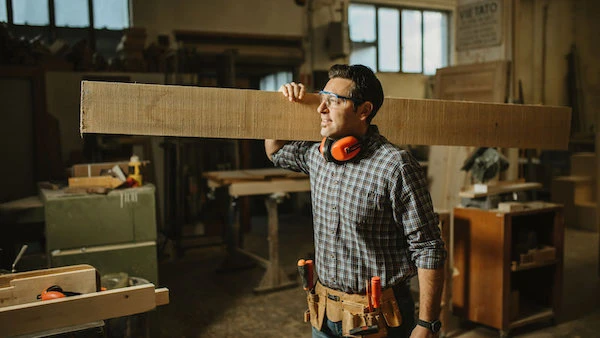This board is obtained after processing unedged boards.
What is an edged lumber
In fact, this is the second stage of wood trunk processing. Regardless of the type of saw, the output after the first cut is unedged board, with bark and rough edges.
Most often the second stage of woodworking is the removal of bark on an edger. After that, the board is dried, where it reaches joinery moisture level (8-12%). This is how you get the most common joinery lumber.
However, some technologists prefer to first dry the board in unedged form and only thenremove the bark and rough edges.

Troubleshooting of edged boards
Wide selection of edged boards
The edged board is divided into sub-types depending on the quality (knots, sapwood, etc.) and depending on the edge processing.
For example, Centerplanks are boards with one side edged and the other side unedged. This board is obtained during the log cutting on a special sawmill in order to achieve a smooth, radial texture.
The edged board is more expensive than the unedged one. 1 m3 of wood in the trunk allows to obtain about 0.6 m3 of edged board.
Most manufacturers supply edged boardsin sets of one thickness, with a length equal to+ -500 mm and a width of 100 mm or more, without limits.
In our experience, the most commonly used edged board is 150 mm wide and 2200 mm long, 26 or 52 mm thick.
The European classification uses the letter F for edged boards (QFA, QF1A, QF1B, QF2, etc.). The American classification is more varied. There are three main categories - Prime (oak of selected quality, without blemishes), Fas (a board, where one side contains at least 83% of the usable area) and Com. (a medium class board, with more than half of the usable area, depending on the sub-species).

Edged lumberpack
Edged lumber use
Since the edged board is a basic carpentry material, it is difficult to outline the limits of its application. Starting from blanks, furniture panels and ending with final products such astables, doors, coffins.


